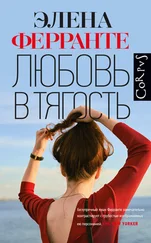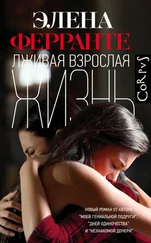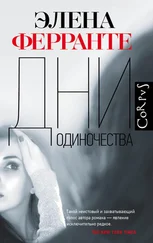4.
I took advantage of an afternoon when they were both out and went to rummage in a dresser in their bedroom where my mother kept the albums containing, in an orderly arrangement, the photographs of herself, my father, and me. I knew those albums by heart. I had often leafed through them: they mostly documented my parents’ relationship and my almost thirteen years of life. And so I knew that, mysteriously, there were a lot of pictures of my mother’s relatives, very few of my father’s, and, among those few, not a single one of Aunt Vittoria. Still, I remembered that somewhere in that dresser was an old metal box that held random images of my parents before they met. Since I’d hardly ever looked at them, and always with my mother, I hoped to find in there some pictures of my aunt.
I found the box in the bottom of the wardrobe, but first I decided to re-examine conscientiously the albums that showed the two of them as fiancés, the two of them as bride and groom frowning at the center of a small wedding party, the two of them as an always happy couple, and, finally, me, their daughter, photographed an excessive number of times, from birth to now. I lingered in particular on the wedding pictures. My father was wearing a visibly rumpled dark suit and was scowling in every image; my mother, beside him, not in a wedding dress but in a cream-colored suit, with a veil the same shade, had a vaguely excited expression. I already knew that among the thirty or so guests were some friends from the Vomero they still saw and my mother’s relatives, the good grandparents from Museo. But still I looked and looked again, hoping for a figure even in the background that would lead me somehow or other to a woman I had no memory of. Nothing. So I moved on to the box and after many attempts managed to get it open.
I emptied the contents onto the bed: all the pictures were black and white. The ones of my parents’ separate teenage years were in no order: my mother, smiling, with her classmates, with her friends, at the beach, on the street, pretty and well dressed, was mixed in with my father, preoccupied, always by himself, never on vacation, pants bunching at the knees, jackets whose sleeves were too short. The pictures of childhood and early adolescence had instead been put in order in two envelopes, the ones from my mother’s family and those from my father’s. My aunt—I told myself—must inevitably be among the latter, and I went on to look at them one by one. There weren’t more than about twenty, and it struck me immediately that in three or four of those images my father, who in the others appeared as a child, a boy, with his parents, or with relatives I’d never met, could be seen, surprisingly, next to a black rectangle drawn with a felt-tipped pen. I immediately understood that that very precise rectangle was a job that he had done diligently and secretly. I imagined him as, using a ruler that he had on his desk, he enclosed a portion of the photo in that geometric shape and then carefully went over it with the marker, attentive not to go outside the fixed margins. I had no doubts about that painstaking work: the rectangles were deletions and under that black was Aunt Vittoria.
For quite a while I sat there not knowing what to do. Finally, I made up my mind, went to the kitchen and found a knife, and delicately scraped at a tiny section of the part of the photograph that my father had covered. I soon realized that only the white of the paper appeared. I felt anxious and stopped. I knew that I was going against my father’s will, and any action that might further erode his affection frightened me. The anxiety increased when at the back of the envelope I found the only picture in which he wasn’t a child or a teenager but a young man, smiling, as he rarely was in the photos taken before he met my mother. He was in profile, his gaze was happy, his teeth were even and very white. But the smile, the happiness weren’t directed toward anyone. Next to him were two of those precise rectangles, two coffins in which, at a time surely different from the cordial moment of the photo, he had enclosed the bodies of his sister and someone else.
I focused on that image for a long time. My father was on a street and was wearing a checkered shirt with short sleeves; it must have been summer. Behind him was the entrance to a shop, all you could see of the sign was –RIA; there was a display window, but you couldn’t tell what it displayed. Next to the dark patch appeared a bright white lamppost with well-defined outlines. And then there were the shadows, long shadows, one of them cast by an evidently female body. Although my father had assiduously eliminated the people next to him, he had left their trace on the sidewalk.
Again I began to scrape off the ink of the rectangle, very gently, but I stopped as soon as I realized that here, too, only the white appeared. I waited a moment or two and then started again. I worked lightly, hearing my breathing in the silence of the house. I stopped for good only when all I managed to get out of the area where once Vittoria’s head must have been was a spot, and you couldn’t tell if it was the residue of the pen or a trace of her lips.
5.
I put everything back in order and tried to repress the threat that I looked like the sister my father had obliterated. Meanwhile I became more and more distracted, and my aversion for school increased, scaring me. Still, I wanted to go back to being a good girl, the way I’d been until a few months earlier: it was important to my parents, and I thought that if I could get excellent grades again I would be pretty again, too, and good. But I couldn’t; in class my mind wandered, at home I wasted my time in front of the mirror. In fact looking at myself became an obsession. I wanted to know if my aunt really was peeking out through my body, and since I didn’t know what she looked like I searched for her in every detail that marked a change in myself. Thus, features that I hadn’t noticed before became evident: thick eyebrows, eyes that were too small and dull brown, an exaggeratedly high forehead, thin hair—not at all beautiful, or maybe not beautiful anymore—that was pasted to my head, big ears with heavy lobes, a short upper lip with a disgusting dark fuzz, a fat lower lip, teeth that still looked like baby teeth, a pointed chin, and a nose, oh what a nose, how gracelessly it extended toward the mirror, widening, how dark the caverns on the sides. Were these elements of Aunt Vittoria’s face or were they mine and only mine? Should I expect to get better or get worse? Was my body—the long neck that seemed as if it might break like the filament of a spider web, straight bony shoulders, breasts that continued to swell and had dark nipples, thin legs that came up too high, almost to my armpits— me or the advance guard of my aunt, her, in all her horror?
I studied myself and at the same time observed my parents. How lucky I had been, I couldn’t have had better ones. They were good-looking and had loved each other since they were young. My father and mother had told me the little I knew of their romance, he with his usual playful distance, she sweetly emotional. They had always felt such pleasure in being with each other that the decision to have a child had come relatively late, given that they had married very young. When I was born my mother was thirty and my father had just turned thirty-two. I had been conceived amid countless anxieties, expressed by her aloud, by him to himself. The pregnancy had been difficult, the birth—June 3, 1979—torturous, my first two years of life the practical demonstration that my entering the world had complicated their lives. Worried about the future, my father, a teacher of history and philosophy in the most prestigious high school in Naples, an intellectual fairly well known in the city, beloved by his students, to whom he devoted not only the mornings but entire afternoons, had started giving private lessons. Worried, on the other hand, about the present—my constant nighttime crying, rashes that vexed me, stomachaches, ferocious tantrums—my mother, who taught Latin and Greek in a high school in Piazza Carlo III and corrected proofs of romance novels, had gone through a long depression, becoming a poor teacher and a very distracted proofreader. These were the problems I had caused when I was born. But then I had become a quiet and obedient child, and my parents had slowly recovered. The phase in which they tried in vain to spare me from the evils that all human beings are exposed to had ended. They had found a new equilibrium, thanks to which, even if love for me came first, second place was again occupied by my father’s studies and my mother’s jobs. So what to say? They loved me, I loved them. My father seemed to me an extraordinary man, my mother a really nice woman, and the two of them were the only clear figures in a world that was otherwise confused.
Читать дальше
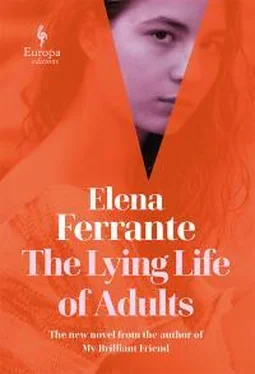
![Элена Ферранте - История о пропавшем ребенке [litres]](/books/32091/elena-ferrante-istoriya-o-propavshem-rebenke-litres-thumb.webp)
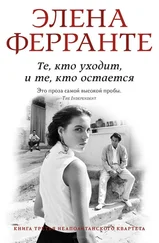
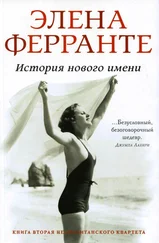
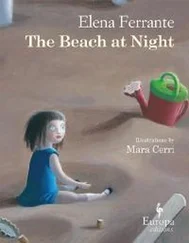
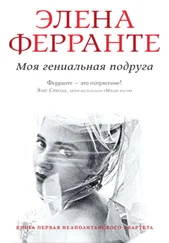
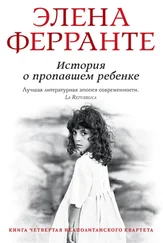
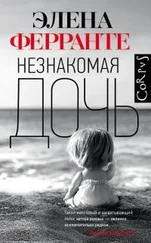
![Элена Ферранте - Дни одиночества [litres]](/books/404671/elena-ferrante-dni-odinochestva-litres-thumb.webp)
